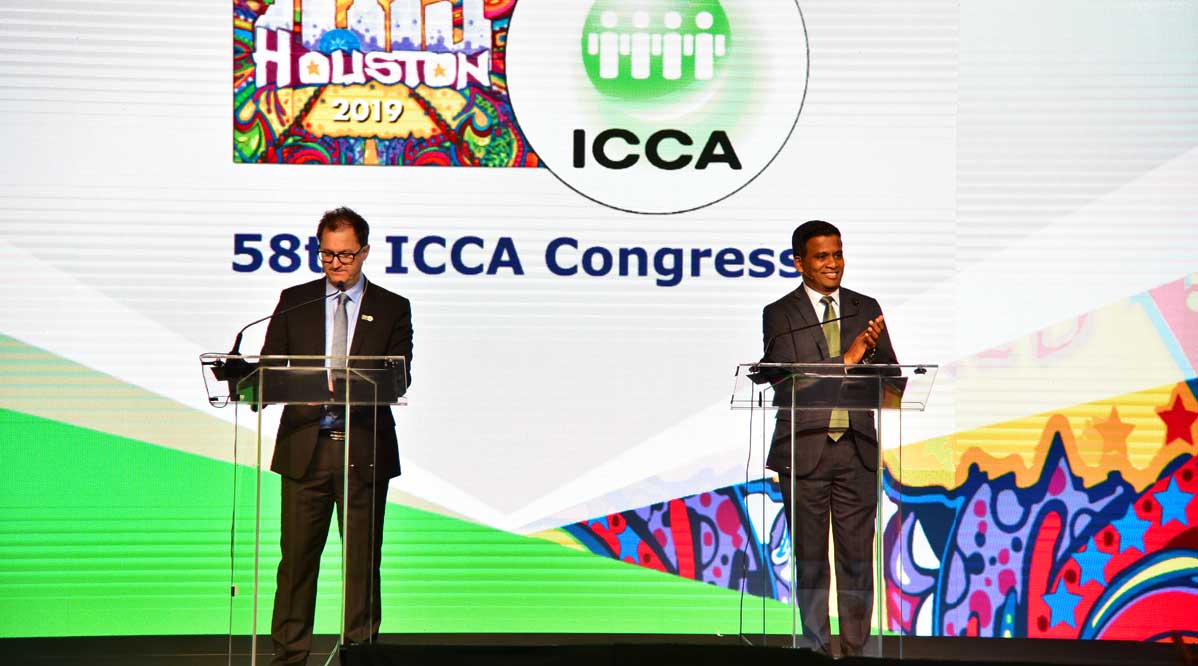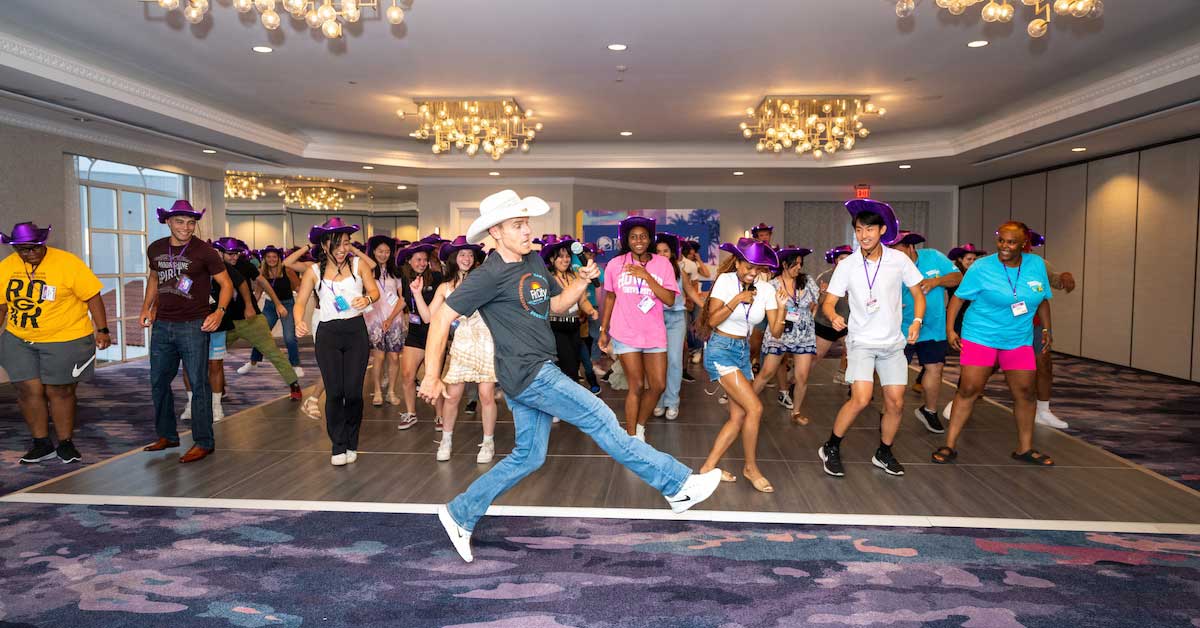Timothy Simpson finds inspiration for his theories on meeting and event design in the words of famed author and biochemist Isaac Asimov.
“Your assumptions are your windows on the world,” Asimov said. “Scrub them off every once in a while, or the light won’t come in.”
Simpson, brand and creative engagement chief strategist at Maritz Global Events, will ask attendees at his session on Tuesday during the 58th annual International Congress and Convention Association (ICCA) Congress in Houston to take Asimov’s words to heart. Simpson’s session—“Busted: Dispelling 8 Common Beliefs About Experience Strategy and Design”—will feature a power-packed panel of meeting industry leaders, including Paul Van Deventer, president and CEO of Meeting Professionals International.
“One thing I would hope attendees come away with is knowing that it’s not hard to be a leader in event design and strategy,” Simpson said. “All it takes is some basic understanding. We want people to take the reins, whether they are hoteliers, associations and CVBs. I hope everyone walks away with an understanding that there’s a difference in how to view experience design and experiential.
“Experience is less about the elements; it’s looking at the journey, not just the design. Design the journey, not just the destination.”
The latter is a mantra Simpson has arrived at after nearly two years with Maritz and his previous career in marketing with organizations such as Maersk Line, SeaLand and the New York Shipping Exchange. He was a client with Maritz before joining the team full time to build out the company’s Design Studio, where he leads business development, marketing and direct client consulting.
“I was introduced in 2013 to the work around experience design and was just floored by its impact,” he said. “It really was for me a marriage between global transformation and change projects. I look at the businesses and people who use live events to guide transformation at both the individual and organizational levels. I’m pretty passionate about the idea of making a difference and the power of face to face.”
That’s partly why he’s excited about his session on Tuesday during ICCA’s annual gathering of global member companies and organizations.
In addition to Van Deventer, Simpson will engage with a panel including Senthil Gopinath, CEO of ICCA; David DuBois, president and CEO of the International Association of Exhibitions and Events (IAEE); Sherrif Karamat, president and CEO of the Professional Convention Management Association (PCMA); and Greta
Kotler, chief global development and credentialing officer for the American Society of Association Executives (ASAE).
“These are five significant thought leaders within the industry, all with different perspectives,” Simpson said. “It’s a pretty neat spectrum of people.”
Each speaker represents a unique aspect of the meeting and event space and can take somewhat different approaches to event design.
“With ICCA, hoteliers, CVBs, associations large and small, you have a lot of global providers in the room,” he said. “Our focus is to talk directly to what role those groups play. Before we even talk about the elements, you need to understand what you are trying to accomplish…create an experience that transforms or moves the audience. Every touch point helps to serve that. A lot of these myths are designed to tackle that thinking.”
“With ICCA, hoteliers, CVBs, associations large and small, you have a lot of global providers in the room. Our focus is to talk directly to what role those groups play."
Simpson likes to take a provocative approach as his team has developed a narrative around the eight myths about event design that should be busted.
One of myths, No. 2 in his narrative, says that “we know better than our guests.” One example cited is golf at incentive programs and the notion that everyone loves golf.
“Stop designing events without knowing guest preferences and understanding them as people,” he said. Doing so leads to “foolish choices.”
“The more insight we can gain prior to design, the more impactful we can be,” he wrote, adding “we need to get beyond thinking we know our audience because we did a post-event survey.”
He said among the first questions he asks in the process is what you know about your audience and how do you know that.
“Do you know their value segments or educational learning styles? We know they didn’t like a meal, or the shower heads didn’t work, but did we really learn how you delivered the event. Did we measure satisfaction versus measuring preference?”
Simpson said it can be a successful process when planners have a deeper understanding of their audience plus the business objectives, helping to define a more impactive strategic roadmap.
Another myth he will bust is No. 8—epic events end with a boxed lunch.
“This is a hilarious example that I love,” he said. He remembers talking with an association client who recalled the conference experience that continued after the final night celebration. While education continued, all the branding had been taken down and the client’s lasting memory was of going down the escalator holding a boxed lunch looking out over a ghost town.
“Is that memory stronger? He said it’s the one thing he first remembers,” Simpson said. “It’s the peak end rule, a key design experience. The peak experience needs to be that signature moment, the last one. If you can afford to do one signature element, have it be the closing moment, such as the CEO at the doors shaking hands with everyone as they’re leaving. It’s personal and its purposeful.”
Simpson and his team have also development a narrative around the eight phases of a successful event that are rooted in five elements for a strategic event framework. They include a focus on brand, organizing principle, business outcomes, guest impressions and total event experience.
To learn more about the Maritz Global Design Studio, go to maritzglobalevents.com/Experience-Design/Design-Studio.


.jpg?sfvrsn=96553155_1)




